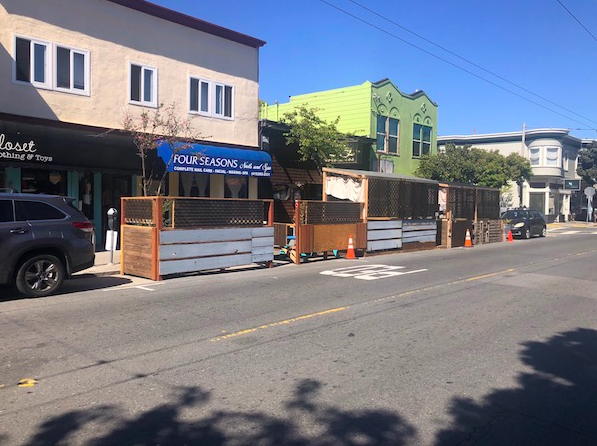Before the Land Use and Transportation Committee dug into the nightmare of gas-line safety and then the complicated political question of how to handle parklets, members took on Monday what is typically a fairly simple issue:
They needed to approve a list of street-repair projects that will be funded by state bond money.

There were, of course, some questions about how the public would be notified, which streets are getting prioritized in which districts, which streets will be torn up and repaved and which will just get a new surface coating … that kind of thing.
But there was an element missing from the conversation.
It’s expensive to tear up and repave streets. It’s relatively cheap to lay fiber optic cable once a street is opened up.
Here’s the list. It’s 219 blocks, all over town.
At the state level, Big Telecom is trying to get special permission to put up wifi phone antennas anywhere they want, in any city. That’s nowhere near as helpful for people who lack affordable broadband as a city-owned fiber network would be.
The city passed a “One Dig” ordinance years ago, which requires anyone who is digging up the streets to give the Department of Technology an opportunity to also lay fiber. But the regulations are written in a way that pretty much ensures it won’t happen often.
There are arguments that, for example, sewer reconstruction isn’t appropriate for fiber conduit, that fiber can’t be too close to electrical wires, and that the only time the city can actually put in fiber is “both financially feasible and consistent with the City’s long-term goals to add City communications infrastructure to the proposed excavation project.”
The city has at this point no long-term goal and funding to create a municipal broadband system.
But several of the supes are behind the idea, and at some point it’s likely to move forward – and then, if nobody takes advantage of putting fiber under the streets when they’re torn up, it’s going to cost so much money to tear them up again that we’ll all hear it’s not financially feasible.
Can you put fiber conduit under a street when it’s being cut and repaved? It shouldn’t be all that difficult – when Comcast (then known as Viacom) first put coaxial cable under the streets in the 1980s, it dug very shallow trenches, just a few inches. (I know, I was there. They towed my car because it was in the way of the cable dig, although the signs never said when they were coming.)
I still don’t see why this isn’t a priority.
Meanwhile, after a long discussion, the committee approved most of the mayor’s plan to legalize parklets. There were key issues that are still getting resolved: Sups. Aaron Peskin and Dean Preston want to be sure that the parklets are open to the public as much as possible, and Sup. Myrna Melgar wants to be sure that the owners of the local restaurants and cafes (who are paying to build and maintain the parkets) have some control over them.
(The hidden issue here: What if homeless people decide to sit down in a parklet and the restaurant owners don’t want them? Indoor facilities can require that people sitting at their tables buy something; what about parklets?)
As Peskin noted, access to public space is a critical part of the legal system in California. The Coastal Commission makes sure that all beaches are open to all – even if there are private houses on the edges of them. “We don’t take a piece of public property and privatize it and not let other people use it,” he said.
And while the committee members all agreed that the city should waive any fees for businesses until 2023, Preston said that big chains like Starbucks shouldn’t get a free ride.
Peskin noted that Mayor Breed has taken a “my way or the highway” approach to this bill. But in the end, there’s not that much disagreement; the supes have approved the measure, and the Mayor’s Office, Peskin said, doesn’t have a lot of problems with the amendments.
Some of the final work will be continued for week. But the mayor’s threats to take this to the ballot seem unfounded.





